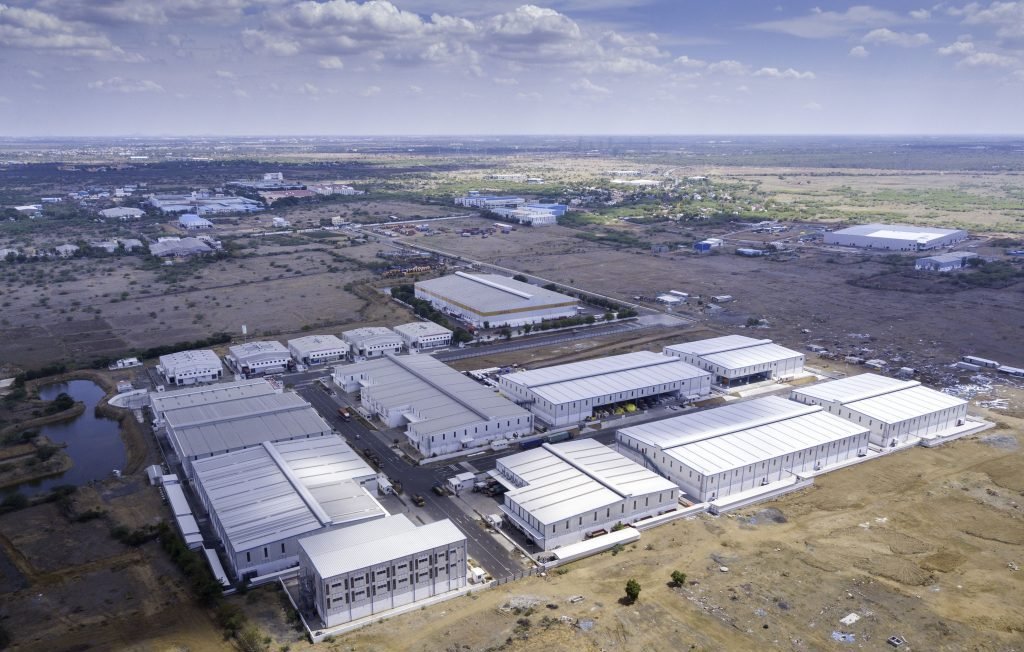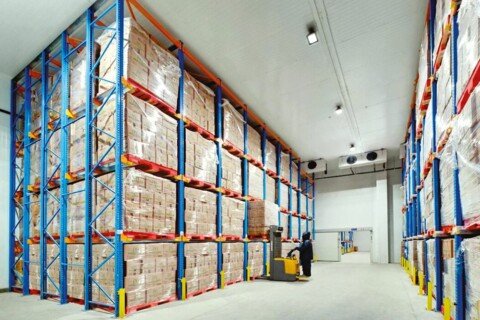India needs to develop more free trade warehousing zones (FTWZs) across the country with with substantial investment in the logistics sector. Free trade warehousing zones are the key to open up new markets, while creating superior quality trade-related infrastructure including warehousing, state-of-the-art equipment, transportation and handling facilities.
FTWZs are the manifestation of the Foreign Trade Policy 2004-09 which envisages facilitating trade transactions of export-import (EXIM) goods and services in free currency by building infrastructure. The scheme was a part of India’s overall vision to increase India’s share in global trade, a meagre 0.8% then. FTWZs, although designated as a special kind of trading enclave, was clubbed under the overall scheme of Special Economic Zones (SEZ). SEZ policy itself was introduced based on experiences of countries like Dubai, Singapore and China which had considerable success in improving trade from such free zones; India hoped to boost exports through a similar framework of subsidies and improved trade infrastructure.
FTWZs, on the other hand, hardly ever got the attention they deserved. As per the government of India report of July 2019, India has eight approved free trade warehousing zones of total 361 hectares. Out of the eight FTWZs, four have been notified. Out of 4 notified FTWZs, only 3 are operational.
| SL No. | Name of the developer | location | SEZ status |
| 1 | Arshiya International Ltd | Taluka Panvel, District Raigad, Maharashtra | Notified/Operational |
| 2 | J. Matadee Free Trade Zone Private Ltd | Sriperumbudur Taluk, Kancheepuram District, Tamil Nadu | Notified/Operational |
| 3 | Arshiya Northern FTWZ Ltd | Moujpur, Bulandshar, Uttar Pradesh | Notified/Operational |
| 4 | Arshiya International Ltd | Taluka & District Nagpur, Maharashtra | Notified |
| 5 | Lepakshi Knowledge Hub Private Limited | Chillamaturu Mandal, Ananthapur District, Andhra Pradesh | Formal Approval |
| 6 | ISPRL FTWZ Padur (Indian Strategic Petroleum Reserves Ltd) | Padur, Karnataka | Formal Approval |
| 7 | Cochin Port Trust | Thoppumpady Rameswaram Village, Cochin, Kerala | Formal Approval |
| 8 | Venkatesh Coke & Power Ltd | Ponneri Taluk, Thiruvalur District, Tamil Nadu | Formal Approval |
The supply chain in India stands ready for a revolution, and investment in India’s supply chain infrastructure is gaining momentum. Recent challenges faced by companies in EXIM logistics as well as shift in manufacturing to reduce dependence on any one source, India has witnessing a major boom in warehousing facilities to support industry prodcution. This can be largely attributed to, among other reasons, increased focus of the incumbent government on logistics and transport infrastructure, the introduction of unified tax system under GST and growing penetration and popularity of e-commerce. Improving warehousing infrastructure and quality is set to play a key role in the Government’s objective to reduce logistics costs as a % of GDP from its current levels of 13-14%.
The country is currently riding a wave in the warehousing industry with a high demand for quality Grade A space. An interesting question, however is, with the warehousing boom, can FTWZs make a comeback and ride a new growth wave?
The benefits of an FTWZ for imports and exports can be quite notable:
- Duty Deferment on imports– Goods can be stored in an FTWZ for up to 2 years without payment of import duties. This allows several manufacturers and traders to follow just in time inventory of goods imported.
- GST and other duty exemptions– Value-added services done within an FTWZ are exempt from GST. Thus, importers, exporters and even re-exporters could carry out labeling, repackaging, kitting, branding, and similar services within an FTWZ thus, saving on costs.
- Smoother Customs clearance– 24/7 and smoother Customs clearance as compared to bonded warehouses.
- Quality control– QC prior to duty payment (imports) / dispatch (exports) saves significant costs and efforts on reverse logistics.
- Cheaper costs on value-added services– Re-exporters could also benefit from skilled labour at relatively cheaper costs on value added services.
With a projected e-commerce industry of USD 188 bn by 2025, India is one of the fastest growing in the e-retail segment. Creating a better trading infrastructure can significantly support the growth of cross border e-commerce. With large retailers such as Amazon and Walmart taking a keen interest in India, a healthy FTWZ ecosystem can attract more such players and contribute significantly in enhancing volumes of international trade and investments in the Indian e-commerce industry.
Also, the ability to send goods into India without the requirement to have an Indian office through an FTWZ can help bring in small to mid-scale international sellers onto Indian e-commerce platforms, both on B2B and B2C side. FTWZs could also expand to create co-working spaces for e-commerce start-ups within the facilities thus, promoting ease of doing business for global players.
Most importantly, the government should focus on leveraging India’s strategic geographic position in South Asia and long peninsular coastline to make it a regional distribution hub. The ability to transact in foreign currency in an FTWZ can be a big advantage in re-exports. Most global traders prefer Singapore, Hong Kong or Southeast Asian countries such Tokyo or Seoul, for setting up regional distribution centers. With the ability of India to provide dollar rentals and cheaper skilled and unskilled labour, this is an untapped opportunity to create a large re-distribution base in India. A strong trading environment supported by high quality and efficient transportation and logistics can boost India’s perception as a competent player for regional distribution.
A new growth wave
What has come as good news is that Jawaharlal Nehru Port Trust (JNPT), India’s premier container port, is engaged in developing multiproduct Special Economic Zone (SEZ), an initiative under the ‘Sagarmala’ program of the Ministry of Shipping and is built on JNPT-owned free hold land of 277 hectares at Navi Mumbai.
The maritime industry has seen rapid growth in the last few years due to increased planned outlay of the government, improved infrastructure facilities and greater access to global markets. The multi-product port based JNPT-SEZ aims to boost exports by enabling port-led industrialisation under Sagarmala and is currently operational with 20 MSMEs and one Free Trade Warehousing Zone (FTWZ) co-developer who have been allotted plots till date.
The port based SEZ at JNPT, will serve as a lucrative investment destination for the domestic and global port-based industries and will set a new benchmark for port led industrialisation. Also, the companies setting their base can leverage the business benefits that the SEZ offers due to the proximity to the Port. With systematic planning, integration, and development of SEZ, along with efficient and inter-linked transport network will help in playing a vital role to reap great benefits that will help the country and in making port based industrialisation a success.
Once fully occupied and operational, JNPT-SEZ is expected to generate Rs 4,000 Crores of investments and create 57,000 direct jobs and generate total employment with multiplier effect to the tune of 150,000, garnering substantial employment opportunity. JNPort also enjoys the Special Planning Authority (SPA) status for the SEZ project.
Global logistics company DP World has also started construction of its Nhava Sheva Business Park (NSBP) Free Trade Zone (FTZ) in Mumbai by laying the foundation stone.
The Rs 1000 crore DP World FTZ investment comes under the Hindustan Infralog (HIPL) joint venture between DP World (65%) and the National Investment & Infrastructure Fund (NIIF) (35%). This venture has been created to invest up to $3 billion in ports, logistics and related sectors across the country.
NSBP, a special purpose vehicle, is a co-developer for the Jawaharlal Nehru Port Trust (JNPT) SEZ. The FTZ is on a long-term lease of 60 years and is located 5 kilometres away from JNPT. After signing a lease agreement in July and successfully acquiring all permissions & approvals, the company has started construction in full swing.
The project is expected to help boost trade especially in sectors like electronics, IT, telecom, pharmaceuticals, chemicals & petrochemicals, machinery, agriculture and foods, and metals.
The gold-rated facility comprising of 1 million sq ft covered storage area with other cargo handling facilities, modern equipment, commercial building, etc., will be completed in 12 to 14 months.
The facility will be equipped with state-of-the-art infrastructure like specialized multi-product and temperature-controlled warehouses, and a container yard with ultra-modern digital and security systems. It will offer round-the-clock customs clearance and value-added services to provide customers with a one-stop solution for all their consumption and trading needs.
Its strategic proximity – to the largest container port in India, the upcoming Navi Mumbai International Airport and National Highways – provides quick and direct access to domestic and global markets. It will offer long-term advantages to domestic as well as global traders and manufacturers, by enabling reliable and fast movement of cargo.







